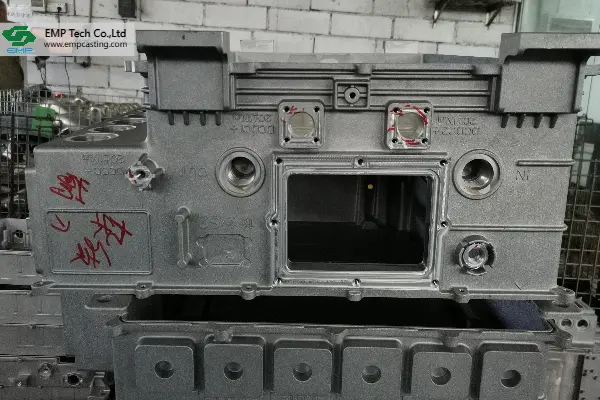Deformation is a common issue in aluminum alloy die-casting production. It affects product appearance and reduces dimensional accuracy and performance. Therefore, adequate measures must be taken to mitigate this problem.
Optimize Mold Design
Ensure rational mold design with a smooth gating system to facilitate metal flow and gas venting. The mold surface should be kept smooth to avoid excessive roughness, which can cause surface protrusions or localized material deficiencies. Optimized cooling channel design ensures uniform cooling, minimizing deformation caused by temperature gradients.
Control Die Casting Process Parameters
Adjust parameters such as machine pressure, molten metal temperature, and injection speed to ensure uniform cavity filling, reducing porosity and shrinkage. Strictly regulate pouring temperatures and pressure to prevent deformation due to improper parameter settings.
Improve Casting Structural Design
Revise casting geometry to eliminate deformation-prone structural features. Rationalize cooling water channel layouts to maintain uniform mold temperatures, preventing defects caused by excessive or insufficient localized mold temperatures.
Optimize Mechanical Processing and Heat Treatment
Adjust ejection positions and increase the number of ejector pins in open areas to minimize stress concentration during demolding. Implement appropriate mechanical processing and heat treatment to reduce internal stresses.
Enhance Mold Surface Treatment
Reduce demolding resistance to prevent deformation caused by excessive friction. Control localized mold temperatures to maintain thermal equilibrium across the mold.
Regular Equipment and Mold Maintenance
Conduct periodic inspections and repairs to ensure optimal performance of die-casting machines and molds, reducing defects caused by equipment issues. Strengthen operator training to improve skills and accountability, ensuring stable and reliable production processes.
Additionally, post-processing of castings should not be overlooked. Severely deformed castings can be corrected through calibration or reshaping. Implement rigorous quality inspections during production to promptly identify and address deformation issues, preventing defective products from advancing to subsequent stages.
By comprehensively applying these measures, deformation in aluminum alloy die castings can be effectively minimized, enhancing product quality and production efficiency.




